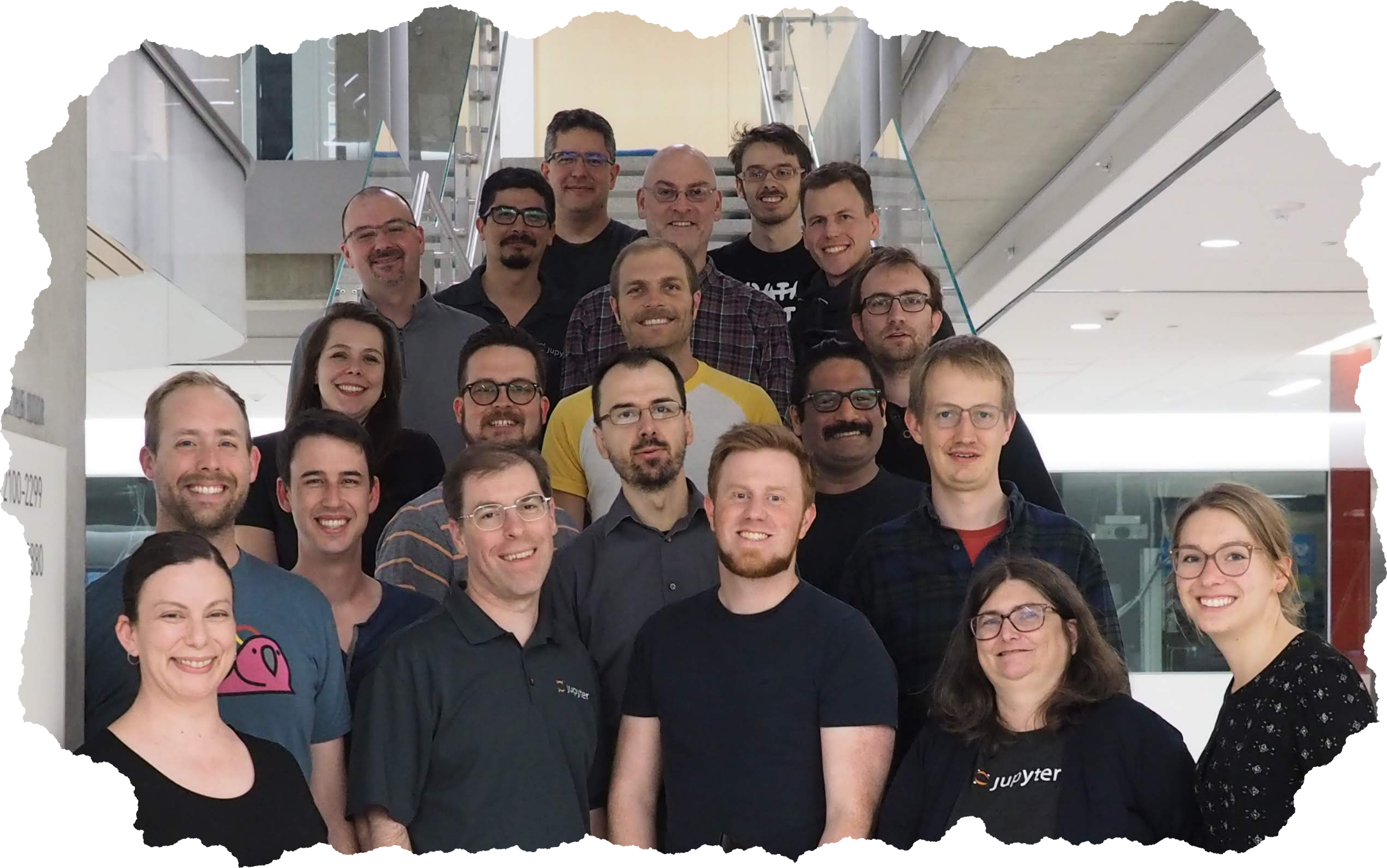Jupyter Team Meeting 2019

“If you want to go fast, go alone. If you want to go far, go together.”
A few weeks ago, I had the opportunity to join many members of the Project Jupyter’s core development team in Washington DC for our annual team meeting. A huge thank you to Dr. Lorena Barba for hosting our team at George Washington University for the week.
This was an incredible experience.
I counted ~20 core contributors representing 9 different countries in the room. Both new and long-time contributors were present. Fernando Perez, the creator of IPython (in 2001) and co-creator of Project Jupyter, was there, as well as Leticia Portella, a new team member that joined through Outreachy four months earlier. The best part–it did not matter what your background was; everyone had an voice.
I won’t spend much time talking about the specific things we discussed during the week (you can find more detail in the links at the bottom). I will just say–I was amazed by how many times phrases like “empower everyone” and “for the greater good” were mentioned thoughout the week.
There’s one thing that is certain; the Jupyter team cares deeply for its community.
Most of our conversations were centered around one question: how do we build a governance model that scales and protects Project Jupyter’s community?
The Jupyter ecosystem is a global community; that comes with many challenges. Until now, Jupyter has suffered from the “tyranny of structurelessness”. But as Jupyter finds itself pulled by various, major stake-holders like IBM, Netflix, Amazon, Microsoft, Google, etc., the community will need to invest time and energy into establishing a structure that protects and sustains its members. During our week together, we constructed some actionable next steps. Now, we just need to make them happen. To follow things that are happening around Jupyter, I strongly recommend you check out our Discourse page.
Further reading I recommend from this week:
- Chris Holdgraf’s thoughts: https://predictablynoisy.com/jupyter-team-meeting-2019
- Jupyter Discourse thread: https://discourse.jupyter.org/t/2019-in-person-team-meeting-updates-and-notes/458
